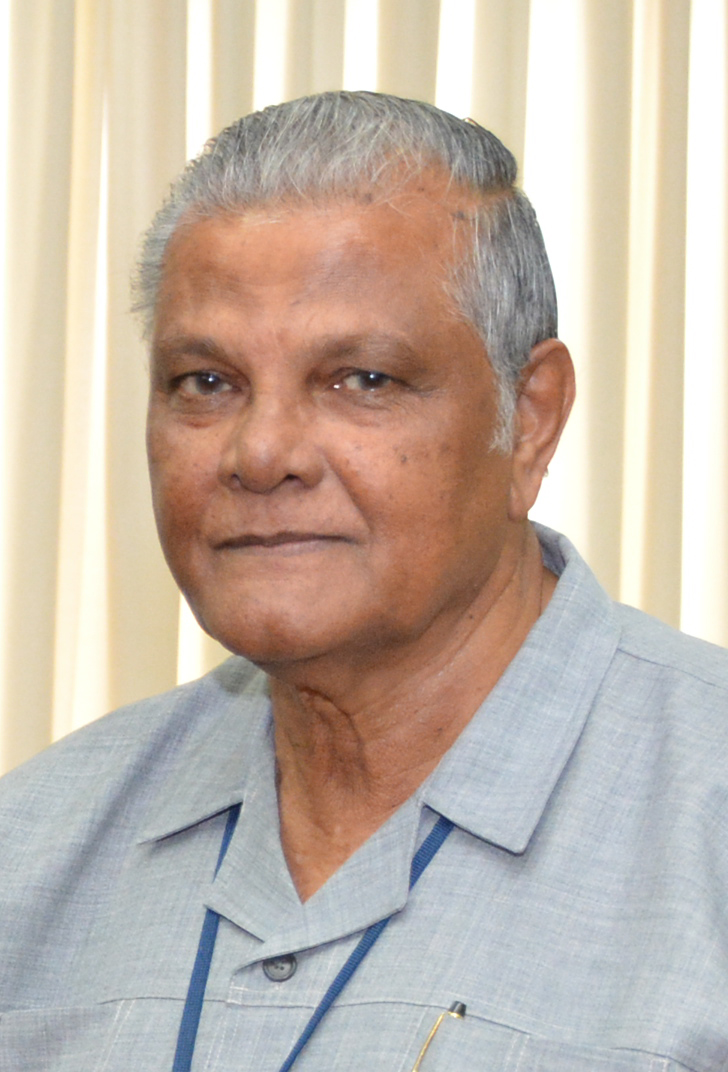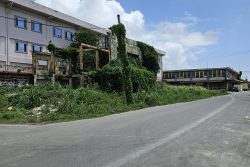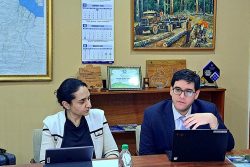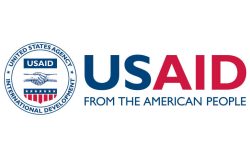While Guyana awaits the International Court of Justice (ICJ) ruling on the validity of the 1899 Arbitral Award on its border with Venezuela, the military, security services and civilians must identify and protest acts of aggression driven by Venezuela’s spurious claim to the Essequibo region and most of the country’s maritime space, retired Major General Joe Singh says.
He said “fishermen offshore, miners in the interior, lumber men in the interior, those crossing over the border to do business, pilots flying into the interior on a daily basis” must be vigilant.
At a recent Guyana Trades Union Congress forum at the Critchlow Labour College to address Venezuela’s recent intrusion into Guyana’s maritime space, Singh said he was concerned that youths below 25 years who comprise 60 per cent of the population do not know what the 1899 award means.
“It would be a serious mistake not educating them about the validity of the award, the justification for our position and the consequences for them and other generations, if Venezuela should continue to ignore international law and disrespect our territorial rights which are acknowledged internationally,” he warned.
Venezuela’s territorial aggression, Singh said, is not only related to the seizure of vessels. He said other acts, which have been ongoing for decades, are also impacting negatively on Guyana’s national security and socio-economic development while facilitating international piracy offshore, allowing for theft of intellectual property and ecocide.
He noted that the acts of aggression include the pollution of rivers, the decimation of wildlife, including giant otters, the stealing of wildlife and plants, and the theft of intellectual property, especially from Amerindian communities.
There is also sustained psychological stress on border communities and Guyana in general, he said, while noting that it also restricts bilateral cooperation and good neighbourliness.
“The good thing is that all our political parties are in accord with the validity of the award and are against Venezuela’s aggressive posture,” he added.
The headlines indicating that Venezuela intends to start surveys in Guyana maritime space off the Essequibo Coast, he noted, signal the continued aggression. “The sea space is only relevant if Essequibo is theirs. We know it is not,” he further said.
In March last year, Guyana filed an application with the ICJ requesting that it confirm the legal validity and binding effect of the 1899 Arbitral Award on the boundary between the two countries. The application followed the decision by the UN Secretary General Antonio Guterres to choose the ICJ as the next means of resolving the controversy after he concluded that the Good Offices process which the two countries had engaged in for almost 30 years had failed to achieve a solution to the controversy.
Venezuela contends that the Arbitral Award of 1899 was null and void.
Singh said the validity of the border became an issue of controversy based on a letter left by Severo Mallet-Prevost, a lawyer in the Venezuelan legal team that worked out the treaty. In the letter, which Mallet-Prevost wrote on February 8, 1944, he alleged that the border was a secret deal between Britain and Russia. The letter, published in 1949 after he died and when there no other of the participants of the treaty still alive, was the basis of Venezuela’s contention for reopening the border issue with Britain in 1962 and its acts of aggression towards Guyana.
Acts
Among the first acts of aggression was in September, 1966, when Venezuela’s military occupied Guyana’s territory on Ankoko Island in the Cuyuni River and established an airstrip on Guyana’s side of the island, where they remain today.
In 1968, he said, President Raul Leoni issued a decree claiming a nine-mile wide stretch of Guyana’s territorial sea along the Essequibo Coast, and in June, 1968, Venezuela’s Ministry of Foreign Affairs published a notice in the London Times warning off investors in the Essequibo.
Prior to Leoni’s decree, at an April 1967 conference of Amerindian chiefs held at Kabakaburi, Pomeroon River, Venezuela’s vice consul to Guyana, Leopoldo Talyhardat, influenced the chiefs to put forward a joint resolution in favour of joint development by Guyana and Vene-zuela of the Essequibo Region. Talyhardat was subsequently asked to leave Guyana and expelled for trying to interfere in Guyana’s internal matters.
“The chiefs denied influence, but we subsequently saw a statement that had been produced at the conference,” Singh said.
Of note also was the January 1969 “Rupununi Uprising” in which Venezuela was actively involved and supported the attempted secession of the Rupununi, Singh said. “It started in late 1968 and culminated on January 2, 1969 with the attack on the Lethem Police Station and the killing of policemen and civilians.”
On February 22, 1970 on the eve of Guyana becoming a Republic, Singh noted, Venezuelan troops at Ankoko shot up the Guyana police station and shelled the Guyana Defense Force border outpost at Eteringbang.
“In the 1970s and 1980s,” he said, “illegal overflights of Guyana’s territory by Venezuela’s military aircraft were done on a regular basis. For example, at Kamarang and at Matthews Ridge, on a regular basis, on Fridays especially, at about ten in the morning, a Canberra bomber from Vene-zuela would overfly our territory. Despite all our objections and protests submitted, they continued,” he added.
In the 1970s and 1980s, Singh also said, Venezuela was actively promoting dual citizenship among Guyanese in the Essequibo region. He explained that “Persons were coming in Matthews Ridge and encouraging the people to wear the t-shirts of political parties that were fighting elections in Venezuela.”
The latest major act of aggression was on December 22nd, 2018, when Vene-zuela’s navy intercepted and attempted to land a military helicopter on the Ramform Tethys, a seismic vessel operating on behalf of the ExxonMobil in Guyana’s maritime space. “The point of intercept was 140 kilometres from the nearest point to the provisional 10 degree line, which is our maritime boundary and 250 kilometres from Punta Playa,” Singh said.
He added that it was only skillful manoeuvring to make the vessel unworkable that prevented the helicopter from landing. They tried to get the vessel to follow their ship to the island of Margarita. When the captain pointed out that it would take a significant amount of time to collect the 10-kilometre lines connecting the vessel to the seabed, they left the vessel, he said.
Based on recent events, Singh opined that Venezuela’s President Nicolas Maduro does not have full control of his military as he should, particularly the navy. “I don’t know if the interception of the Ramform Tethys was centrally instructed or whether it was the navy’s own enforcement,” he noted.
A related act of aggression was in 2013, he said, when the Venezuelan navy seized the Teknik Perdana, a survey vessel which was working in Guyana’s maritime space on behalf of the Texas-based oil investor Anadarko. The navy escorted the vessel to Margarita.
Another aggressive act, Singh said, was the December 3rd, 2015 landing of a Venezuelan military helicopter at Kaikan.
Venezuela’s heightened aggression, Singh said, is related to the 10 large offshore discoveries by the consortium headed by ExxonMobil in partnership with Hess and CNOOC Nexen between 2015 and 2018. The consortium identified an estimated five billion barrels of recoverable oil in the Stabroek Block, with the extraction of between 120,000 barrels from early 2020 and 250,000 barrels by 2022, yielding between US$7 billion and US$27 billion in gross revenue over the next 30 years.
Venezuela’s objection to Beal Aero-space’s proposed equatorial satellite launch station on the Waini Coast and the development of Upper Mazaruni hydro power project, must also be seen as acts of aggression, he noted.
The aggression also includes the migration of disaffected and impoverished Venezuelans into Guyana’s border regions, and health concerns, such as the transmission of malaria and HIV into Guyana. At present, he noted, the Ministry of Citizenship estimates that about 9,000 Venezuelans are now in Guyana.
The political instability in Venezuela, he further said, is creating another problem for Guyana as Maduro second six-year term in office is not being recognised by his country’s Constituent Assembly and has called on the military not to do so. In addition, a number of countries, including Guyana, have voted at the level of the Organisation of American States not to recognise Maduro’s regime.
Negative impacts
As part of the 1899 Arbitral Award, Singh said, the Upper Cuyuni was handed over to Venezuela, with the Middle and Lower Cuyuni, ending at Bartica, handed over to Guyana. “As to why the people drew the line straight through the four-square mile island of Ankoko, I don’t know,” he further said.
Also seen as acts of aggression are the untidy mining in the state of Bolivar and the pollution of the upper Cuyuni River in Venezuela which flows downstream, causing negative impacts on communities and aquatic life in the middle and lower Cuyuni River. The waste, which includes heavy metals and mercury used to capture the gold flows, pollutes tributaries of the Cuyuni River and affect frontier communities like Eteringbang and Kurutuku.
The security implications of ‘sindicatos’ and other transnational criminal organisations operating within the state of Bolivar and the raiding of mining camps in Guyana’s territory, he said, are among other acts of aggression that threaten the lives and livelihoods of Guyanese.
Because of serious internal issues, Singh said, the military has withdrawn their regular troops from certain parts of Venezuela’s interior and has employed the sindicatos as surrogates who are the enforcers for the Guardia Nacional.
“They go to the mining camps. They collect tributes. They decide who can mine in an area or not. Two years ago there were allegations of human rights violations, people being killed and thrown down mine shafts. All of those I expect would surface when democracy is restored in Venezuela and human rights violations and abuses will surface,” he pointed out.
Singh also noted the illegal trade in rice and fuel, which are being shipped across the border through deals with sindicatos. Guyana’s customs and energy authorities were aware of the activities, he said, but cannot do much about it as they have no officials to speak with on the Venezuelan end.
Stopping the movement of rice, flour, sugar and other basic food stuff cross the border, he said, will result in a lot of grief in the Delta Amakura.
It is unlikely that a miner operating in the Upper or Middle Cuyuni, Eteringbang or Wenamu, he said, will move fuel from Georgetown when they can get the fuel cheaper, even with bribing the military, from San Martin in Venezuela to Eteringbang or to Olive Creek or Ekereku.
This cross border movement, he added, should be negotiated at the bilateral level but without that it has to be carefully managed. “As long as there are instabilities in Venezuela, the irregularities will continue,” he said.
The fact of life, according to Singh, is that people who live on the frontier have their own dynamics.










